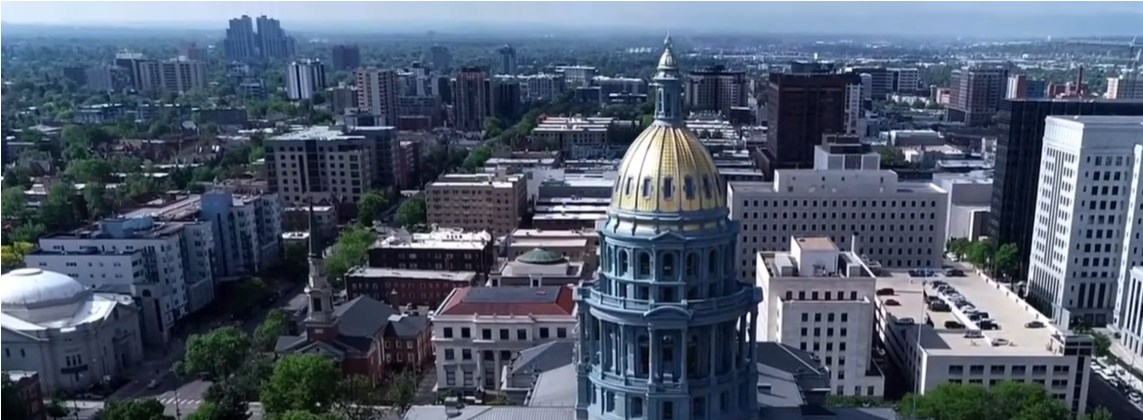Denver, Colorado, a vibrant metropolis nestled against the majestic backdrop of the Rocky Mountains, carries a name steeped in history and significance. The origin of Denver’s name is a tale that intertwines exploration, politics, and personal legacy. This article delves into the captivating story behind Denver’s name, exploring its origins, the individuals involved, and the enduring significance it holds for the city and its residents.
James W. Denver: The Man behind the Name
To understand the origins of Denver’s name, we must delve into the life of James William Denver, the man who left an indelible mark on the city’s history. James Denver was born in Virginia in 1817 and embarked on a multifaceted career as a lawyer, politician, and military leader. He served as a captain during the Mexican-American War and later became the Secretary of State for the Territory of California. His reputation and accomplishments caught the attention of settlers in the emerging Colorado region.
The Founding of Denver City
In November 1858, a group of prospectors from Kansas Territory formed the St. Charles Town Company with the intent of establishing a settlement in the region. Seeking a name that would pay homage to their political hero, they chose to name the new settlement “Denver City” after James W. Denver. This decision honored the former Kansas Territorial Governor and highlighted his efforts in promoting western expansion and settlement.
Denver’s Connection to the Gold Rush
The naming of Denver City coincided with the peak of the Colorado Gold Rush. The discovery of gold in the area had attracted a flood of prospectors seeking their fortunes in the Rocky Mountains. The founders of Denver City recognized the significance of the gold rush and strategically chose a name associated with a prominent political figure to attract attention and foster a sense of legitimacy and importance for the fledgling settlement.
The Significance of the Name
The choice to name the settlement Denver City was not merely symbolic but carried practical implications as well. The name Denver evoked a sense of authority and respectability, lending credibility to the settlement amidst the rough and tumble environment of the frontier. The association with James W. Denver, a well-known political figure, helped to establish Denver City as a hub for trade, commerce, and future development.
James W. Denver’s Legacy
Despite the honor bestowed upon him by having a city named after him, James W. Denver never set foot in the place that bore his name. However, his legacy extends beyond the name itself. Denver’s reputation as an advocate for western expansion and development aligns with the city’s own growth and prominence over the years. James W. Denver’s name serves as a reminder of the pioneering spirit and the aspirations that shaped the city’s early years.
Evolving Identity and Recognition
As Denver City grew and evolved, it dropped the word “City” from its name, becoming simply known as Denver. The name Denver became synonymous with the city’s identity and its progressive growth as a regional center for trade, culture, and innovation. The significance of the name has been reinforced over time as Denver has transformed into a modern metropolis, while still embracing its Western heritage and pioneer spirit.
Denver’s Mile High Identity
Denver’s name also carries with it the distinction of being the “Mile High City.” The city’s elevation of precisely one mile above sea level adds another layer of significance to its name. This unique geographical feature has become an integral part of Denver’s identity, attracting visitors and residents alike. The “Mile High City” moniker serves as a proud symbol of Denver’s lofty aspirations and serves as a reminder of the city’s high-altitude location, nestled among the breathtaking peaks of the Rocky Mountains.
Preservation and Commemoration
Denver takes great pride in preserving its historical heritage and recognizing the significance of its name. Numerous landmarks, institutions, and public spaces throughout the city pay homage to James W. Denver and the city’s origins. The Denver City and County Building, adorned with intricate architectural details, stands as a testament to the city’s past and present. Additionally, the Denver Public Library’s Western History and Genealogy department houses valuable historical records, maps, and photographs that allow residents and visitors to delve deeper into the city’s origins and the stories behind its name.
The Name’s Enduring Significance
Denver’s name remains a vital part of the city’s identity and serves as a constant reminder of its historical roots. It represents the spirit of exploration, ambition, and perseverance that characterized the city’s early settlers and pioneers. The name Denver encapsulates the ongoing narrative of growth, progress, and resilience that defines the Mile High City. As Denver continues to thrive and evolve, the name connects the present to the past, providing a sense of continuity and pride for the city’s residents and serving as a symbol of the pioneering spirit that shaped its destiny.
Denver’s name is not merely a label; it encapsulates a fascinating narrative of exploration, opportunity, and the spirit of the American West. Honoring James W. Denver, a prominent political figure of the time, the name Denver City was chosen to establish legitimacy, attract attention, and signify the aspirations of the early settlers. Over time, the name Denver has become synonymous with the city’s identity, its growth, and its enduring connection to the pioneering spirit that shaped its history. As Denver continues to thrive as the Mile High City, the significance of its name persists, reminding us of the city’s remarkable origins and its ongoing legacy as a vibrant metropolis in the heart of the American West.

